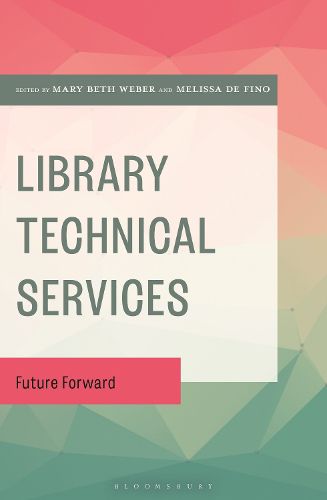Readings Newsletter
Become a Readings Member to make your shopping experience even easier.
Sign in or sign up for free!
You’re not far away from qualifying for FREE standard shipping within Australia
You’ve qualified for FREE standard shipping within Australia
The cart is loading…






This book takes a look at the future of technical services post-pandemic and at the brink of technological disruptions through a diversity, equity, inclusion, and accessibility lens.
Libraries have undergone a tremendous transformation that has been driven by multiple factors that include technological developments, and societal impacts such as declining college enrollment and the aftermath of the COVID-19 pandemic, which has introduced changes to how technical services professionals work and provide services. Whereas the library is often perceived by users as a building to house print books and journals, the reality is that the library encompasses both physical and virtual spaces. For many users, the library's online catalog and website are their first (and perhaps only) experience with the library. Our user community is global, and technical services work has evolved to serve users with a growing array of electronic resources, including e-books, databases, and e-journals. These resources differ from their print counterparts in that they cost more, require licenses and contracts that must continually need to be renegotiated and renewed, must comply with accessibility standrards, and require different skill sets to catalog. The virtual spaces and services libraries provide are built on the foundation provided by technical services librarians.
Assessment is an important, yet often overlooked, aspect of technical services work, and is addressed in this book. It is critical for collection development and acquisition of electronic resources. It is also an important component of the work of electronic resources librarians, who monitor usage and trends.
Developing an appropriate skill set for technical services work is essential for success. This includes knowing the standards for the work performed, awareness of emerging standards, and remaining relevant.
$9.00 standard shipping within Australia
FREE standard shipping within Australia for orders over $100.00
Express & International shipping calculated at checkout
This book takes a look at the future of technical services post-pandemic and at the brink of technological disruptions through a diversity, equity, inclusion, and accessibility lens.
Libraries have undergone a tremendous transformation that has been driven by multiple factors that include technological developments, and societal impacts such as declining college enrollment and the aftermath of the COVID-19 pandemic, which has introduced changes to how technical services professionals work and provide services. Whereas the library is often perceived by users as a building to house print books and journals, the reality is that the library encompasses both physical and virtual spaces. For many users, the library's online catalog and website are their first (and perhaps only) experience with the library. Our user community is global, and technical services work has evolved to serve users with a growing array of electronic resources, including e-books, databases, and e-journals. These resources differ from their print counterparts in that they cost more, require licenses and contracts that must continually need to be renegotiated and renewed, must comply with accessibility standrards, and require different skill sets to catalog. The virtual spaces and services libraries provide are built on the foundation provided by technical services librarians.
Assessment is an important, yet often overlooked, aspect of technical services work, and is addressed in this book. It is critical for collection development and acquisition of electronic resources. It is also an important component of the work of electronic resources librarians, who monitor usage and trends.
Developing an appropriate skill set for technical services work is essential for success. This includes knowing the standards for the work performed, awareness of emerging standards, and remaining relevant.